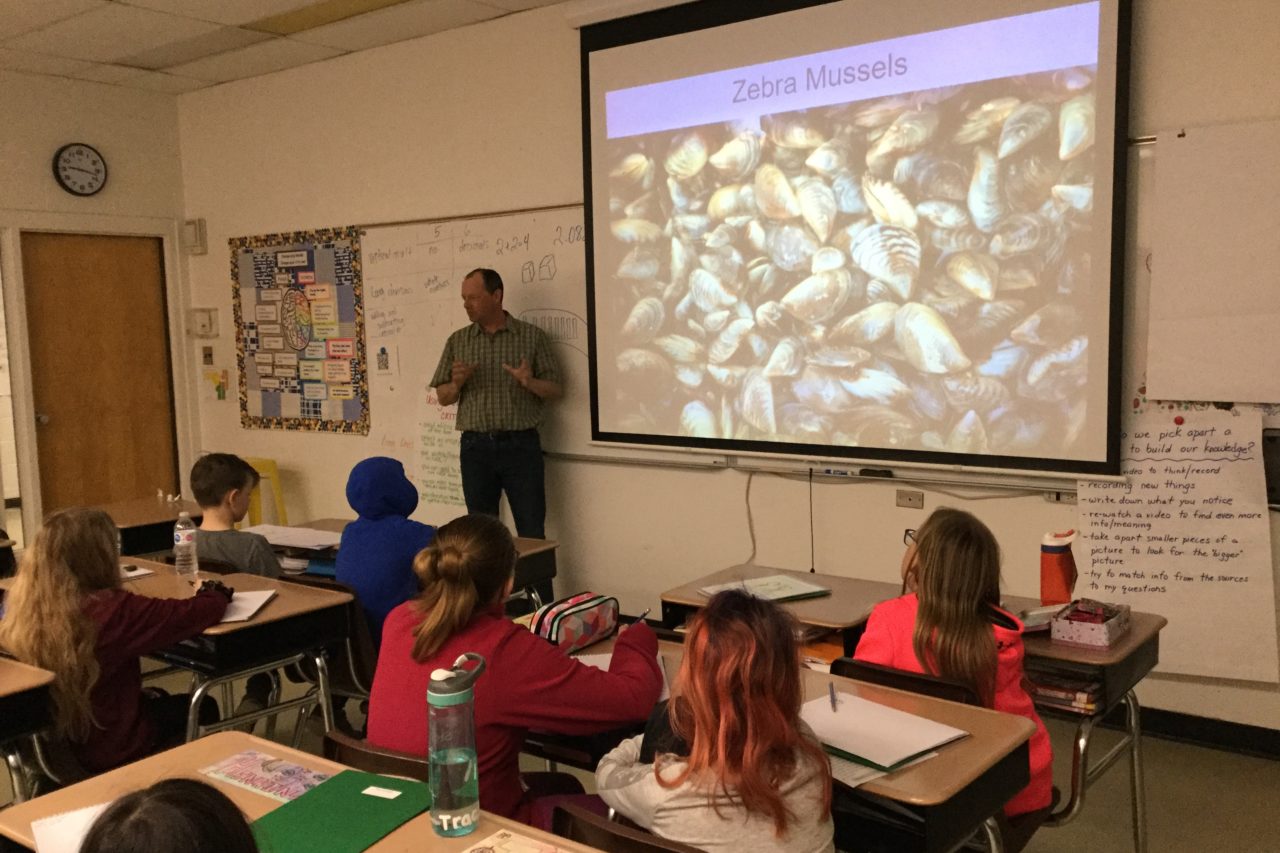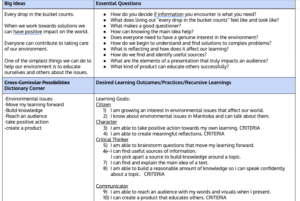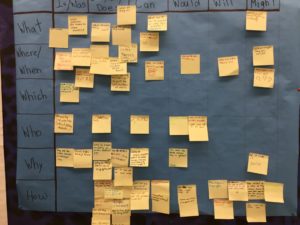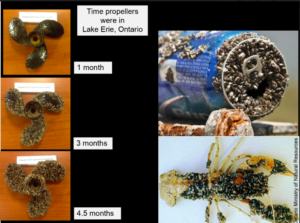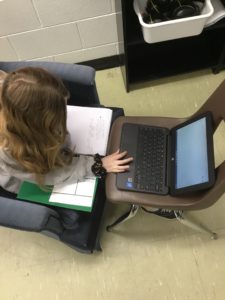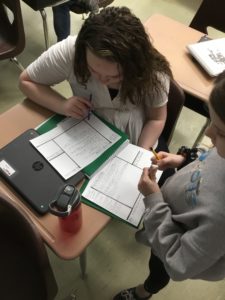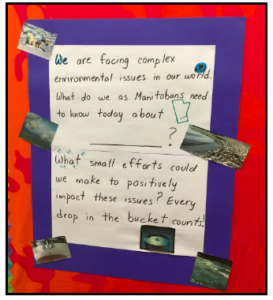The Gist
At Blumenort School, the Grade 5/6 class was moving through an inquiry together around the theme “every little bit counts” in regards to environmental sustainability in Manitoba. After using a question matrix to brainstorm wonderings around the topic of zebra mussels, students began digging into online sources to build their knowledge. Derek Kroeker, a regional fisheries manager for the Sustainable Development Department of the Province of Manitoba, visited the class to help add to this knowledge, clarify misunderstandings and provoke further questions. Students gave him questions beforehand and he presented a grade-level appropriate presentation. Afterwards, students added to their already recorded notes in their Thought Books and tweaked any necessary information.
Good Stuff
- The expert commented on how engaged the students were with the topic. He felt they already possessed a “sophisticated understanding” of the Manitoba issue.
- During a small group reflection, positive comments were shared:
- “It was hard to be patient and listen to the presenter because I wanted to ask my questions right in the moment!”
- “The expert had lots of photos and first-hand examples. He brought real zebra mussels that were once alive and we got to see them up close and touch them.”
- “The expert could explain things simply to me and it was easier to understand than what was online.”
- The expert wasn’t seen as a one-off presenter that did not connect with what students actually had a desire to learn about. Their brains were primed to listen and there was a genuine interest to confirm and expand the knowledge they had already gathered.
- Making a connection with this expert allowed the class to get connected to other environmental experts who helped build their knowledge around other topics later explored (ie. disappearing wetlands, protection of lake sturgeon, extreme weather, and algae blooms).
Wondering Stuff
- How could we collect a bank of experts from a school’s local community which teachers could draw from?
- How can we make connections to experts longer-lasting and an integral part of the school community on a regular basis?
- How could we move students towards finding experts to connect with?
- Is there a way to use digital to enhance the presenter-audience experience so students can ask questions in the moment in a way that does not disrupt the flow of the presentation?
Next Stuff
- School staff create a bank of experts they know from their own lives (from an uncle who runs a dairy farm to a friend who does professional photography throughout Europe) that teachers could connect with when a learning need arises during the school year.
- Using Google Slides, the Audience Q & A is a real time way in which students can ask questions to the presenter without interrupting the flow of the presentation.
- Skype in Education has a list of available speakers on a range of topics that classes can connect with.
Last Thoughts
“Deep learning is quality learning that ‘sticks’ with you for the rest of your life; it increases student engagement through personalization and ownership; it connects students to the ‘real world’; it resonates with spiritual values; it builds skills, knowledge, self-confidence, and self-efficacy; it builds new relationships with and between the learner, their teachers, families and communities; and it deepens the human desire to connect with others to do good. In terms of outcomes deep learning focuses on specific global competencies that we call the 6Cs: character, citizenship, collaboration, communication, creativity, and critical thinking.” –Michael Fullan, Joanne Quinn & Joanne McEachen, New Pedagogies for Deeper Learning
